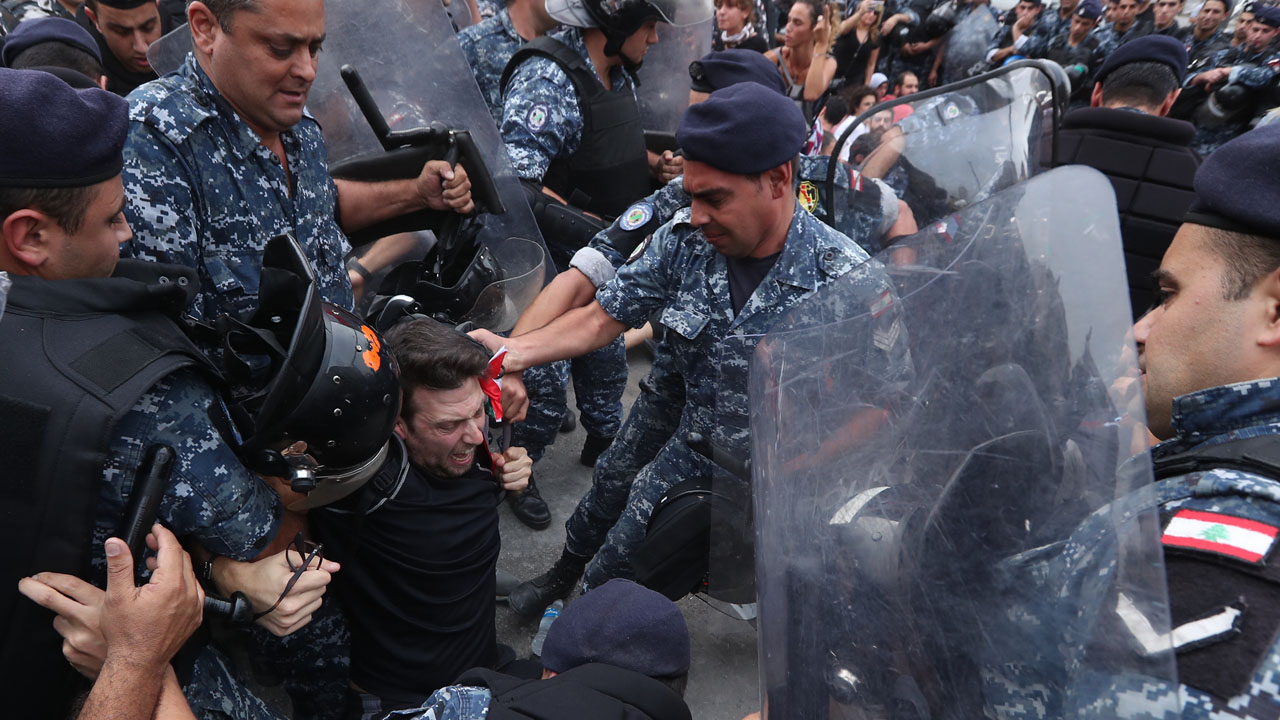
An unprecedented, cross-sectarian protest movement demanding the removal of an entrenched political elite has paralysed the country since October 17, leaving the army with a difficult task.
When demonstrators this week blocked roads to press their demands, soldiers were deployed to reopen them.
What could have been a tense sequence ended with protesters singing the national anthem, praising the soldiers and handing them flowers.
“There have been repeated attempts by the political establishment… to get the military to clear the street,” said Aram Nerguizian, a researcher at the Center for Strategic and International Studies.
“The Lebanese Armed Forces have resisted these attempts,” said Nerguizian.
Fadi Daoud, a retired army general, said the armed forces had to juggle what have become “two contradictory duties” — protecting the people’s freedoms and executing the orders of the political establishment.
Its task has been further complicated by the emergence of counter-demonstrations by party loyalists looking to confront the protesters lambasting their leaders.
The Lebanese army was in tatters at the end of the 1975-1990 civil war, an empty shell in a country that was under Syrian occupation until 2005.
Meanwhile, the Iranian-backed Shiite militia Hezbollah grew to outgun the army, which took years to restore its credibility but never lost its popularity.
‘One of us’
“The Lebanese military is one of the very few institutions that is both close to being representative of the public, demographically, and at the same time behaving in a way over time that is broadly credible,” Nerguizian said.
With around 80,000 personnel, the army is seen as a symbol of national unity that has weathered sectarian divisions and tensions over the years.
According to Daoud, the unprecedented protests that have gripped the country could be an opportunity for the army to further increase the legitimacy it needs “to build up its strength and viability.”
It has received billions of dollars from the West in recent years but its claim to being the country’s protector continues to be rivalled by Hezbollah, the only group that did not disarm after the civil war.
Observers say the unprecedented nationwide nature of the protest movement is likely to create bridges between the demonstrators and the army.
In 2005, which was the last time that many people took to the streets, the army was caught between the rival pro-Syrian and anti-Syrian camps.
Today, political leaders have diverging positions “but the street is one”, said Daoud, who served in the military from 1983 to 2019.
The images of the soldier who was moved to tears by the protests and those of another embracing his father who was among the demonstrators touched the heart of the Lebanese public.
“He’s crying because he’s one of us, he feels our pain and we feel his,” said Ali, a 34-year-old among the thousands occupying the main square in Beirut every day.
Graffiti reading “the army is a red line” has started appearing on the walls of Beirut, another sign of its popularity among the protesters.
With the protesters calling for the wholesale dismissal of the political class without offering a clear alternative, some have argued the army could step in.
Pictures of the commander of the armed forces, Joseph Aoun, have started appearing on social media with the slogan: “Save us!”



